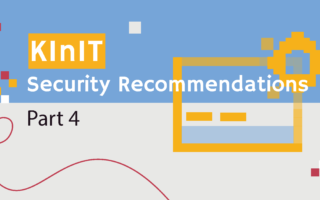What's
Network Intrusion Detection Using Machine Learning
Whether we like it or not, information technologies have penetrated deep into most aspects of our everyday lives. Most of us cannot imagine our day without a mobile phone or computer, whether for work or personal purposes. Nevertheless, cybercriminals aim to utilize this state, threatening technologies we use, typically for financial gain. Consequently, we must protect our systems to minimize the probability of a successful cyber-attack and its potential harm.
Besides malware clustering, we are also active within the field of network intrusion detection systems (NIDS) at KInIT. NIDS are computer systems that aim to detect ongoing cyber intrusions or their attempts in order to warn the system administrator and alternatively actively perform countermeasures to protect the monitored system. Combining this mechanism with machine learning techniques, we strive to create adaptive and robust solutions to protect computer networks against a wide variety of threats while being able to tweak their behavior based on the environment the system is deployed in.
This project is focused on the following aspects:
- Improve our understanding of cyber threats and their detection using state-of-the-art machine learning methods.
- Educate the public via a professional seminar and an article for the general public.
By improving our understanding of cyber threats and their detection, our researchers will be able to better respond to emerging cybersecurity trends and thus fine-tune their detection models for specific purposes relevant to the security situation. The study will analyze the most current literature from relevant scientific journals and databases. This knowledge will be utilized in future research as a part of the dissertation of our Ph.D. student Patrik Goldschmidt, as well as in future projects solved by our institute.
Sharing the relevant information is crucial in order to improve public awareness of cyber security. For this purpose, we wrote an article with tips to increase computer’s physical security against common threats.
In addition to educating the general public, we also presented our research to the professional community. Our Ph.D. student Patrik Goldschmidt gave a talk about the NIDS domain and his ongoing research.
These activities were supported by the Pontis Foundation thanks to tax assignations from Aliter Technologies and MetLife.



